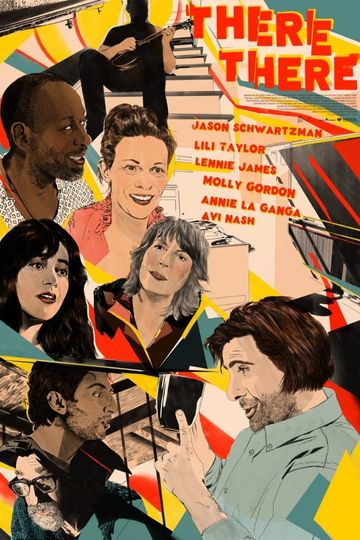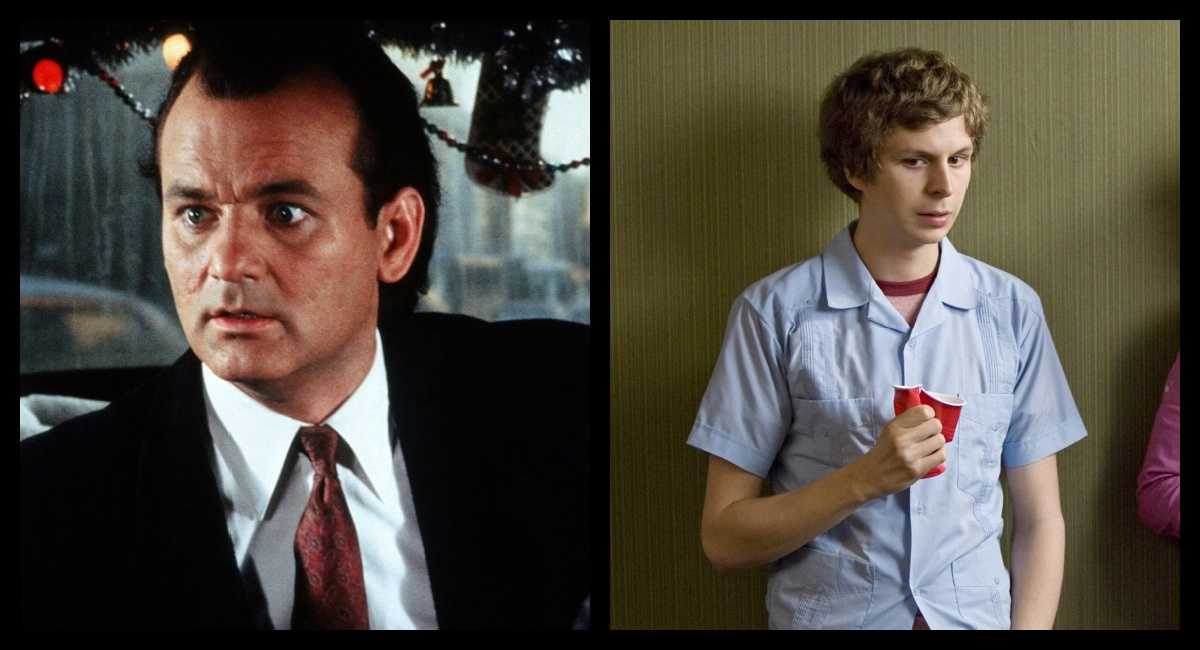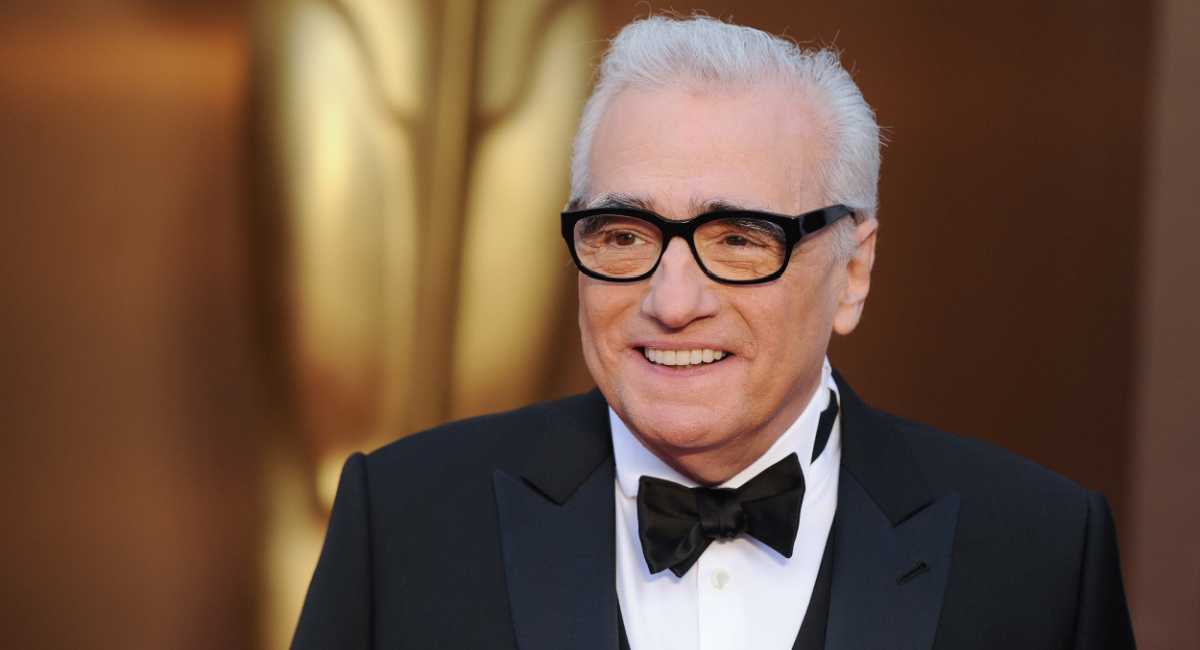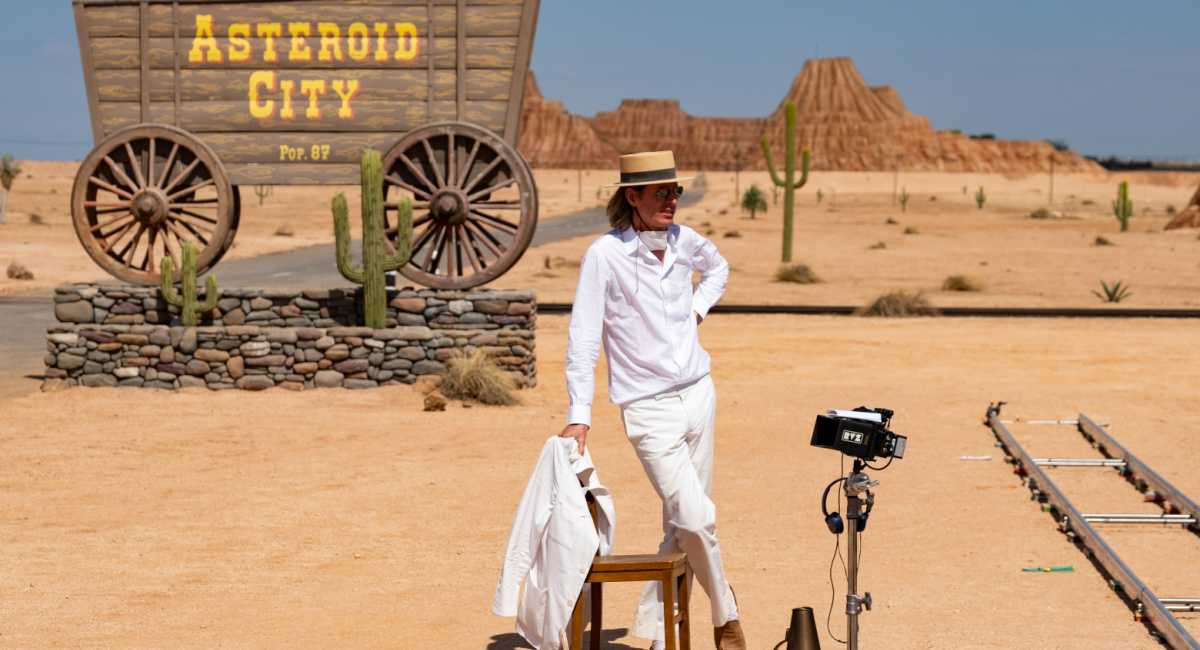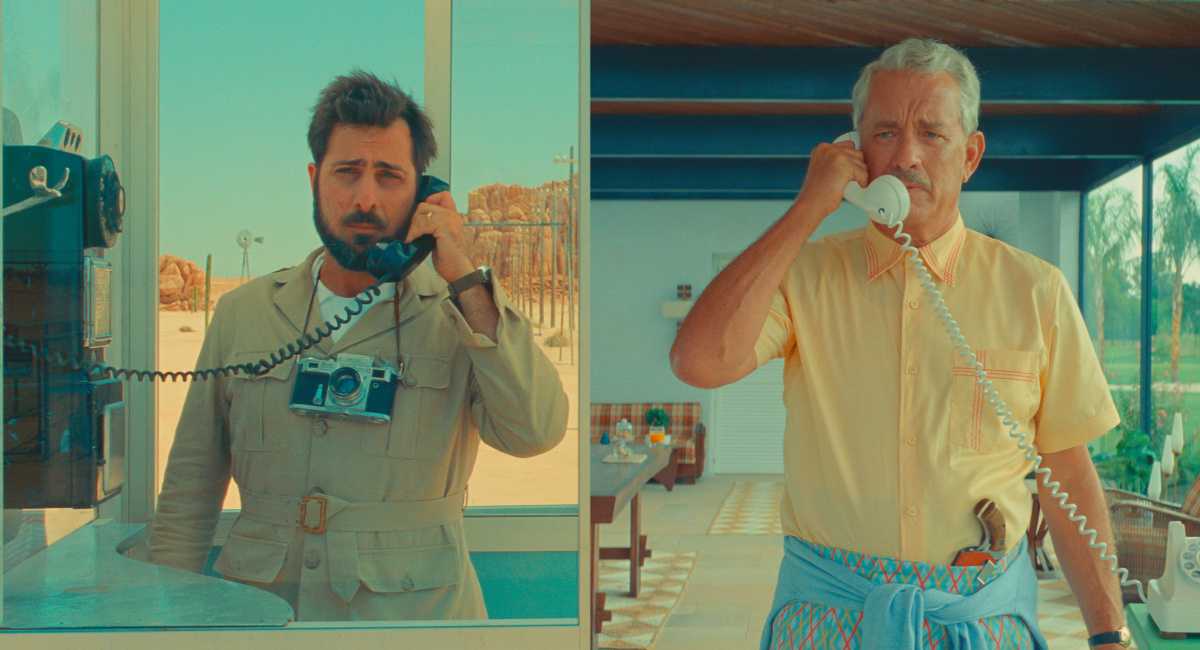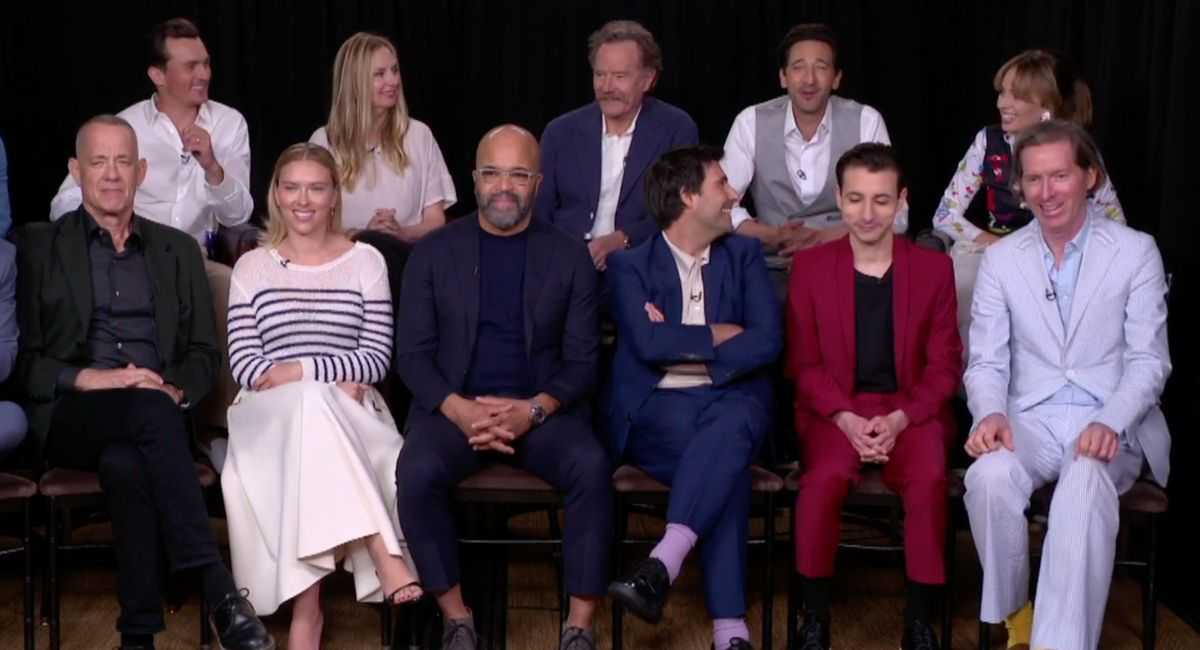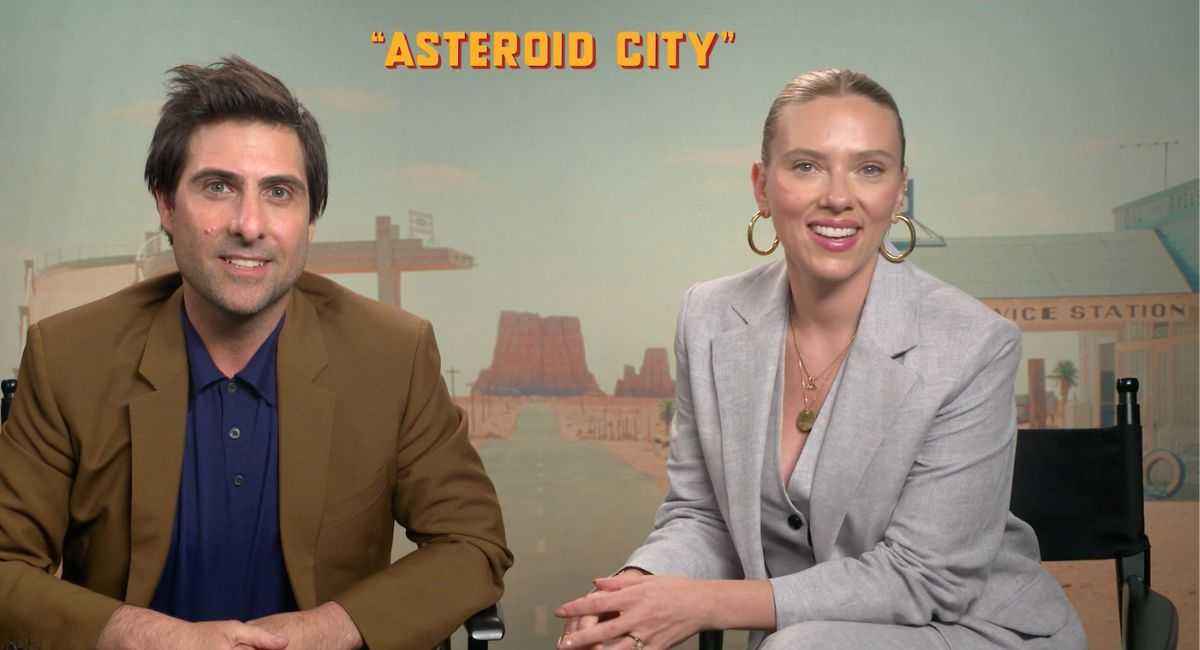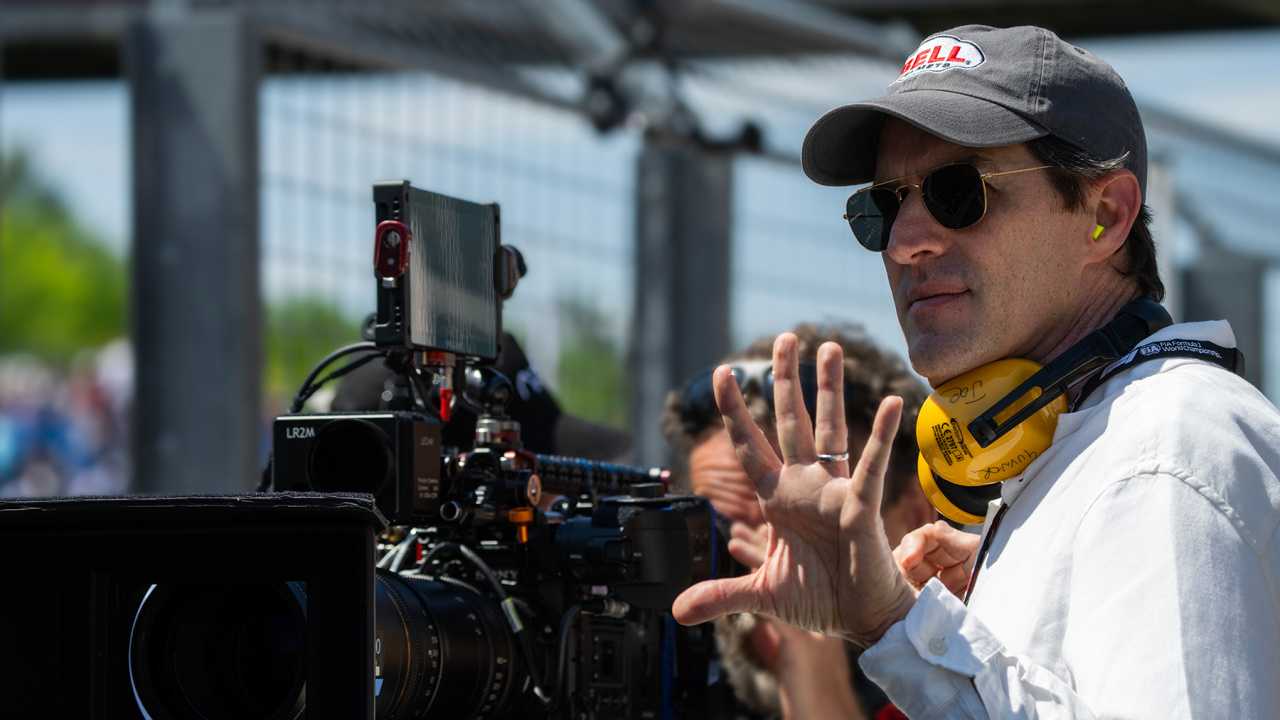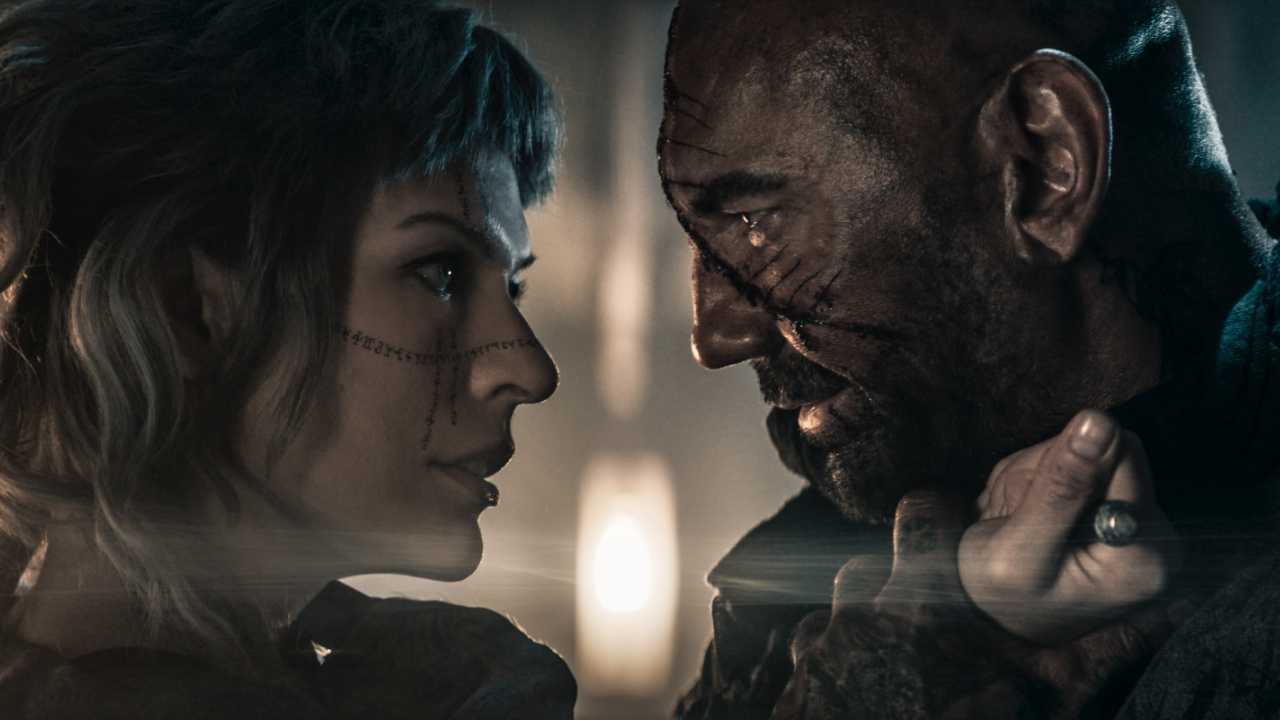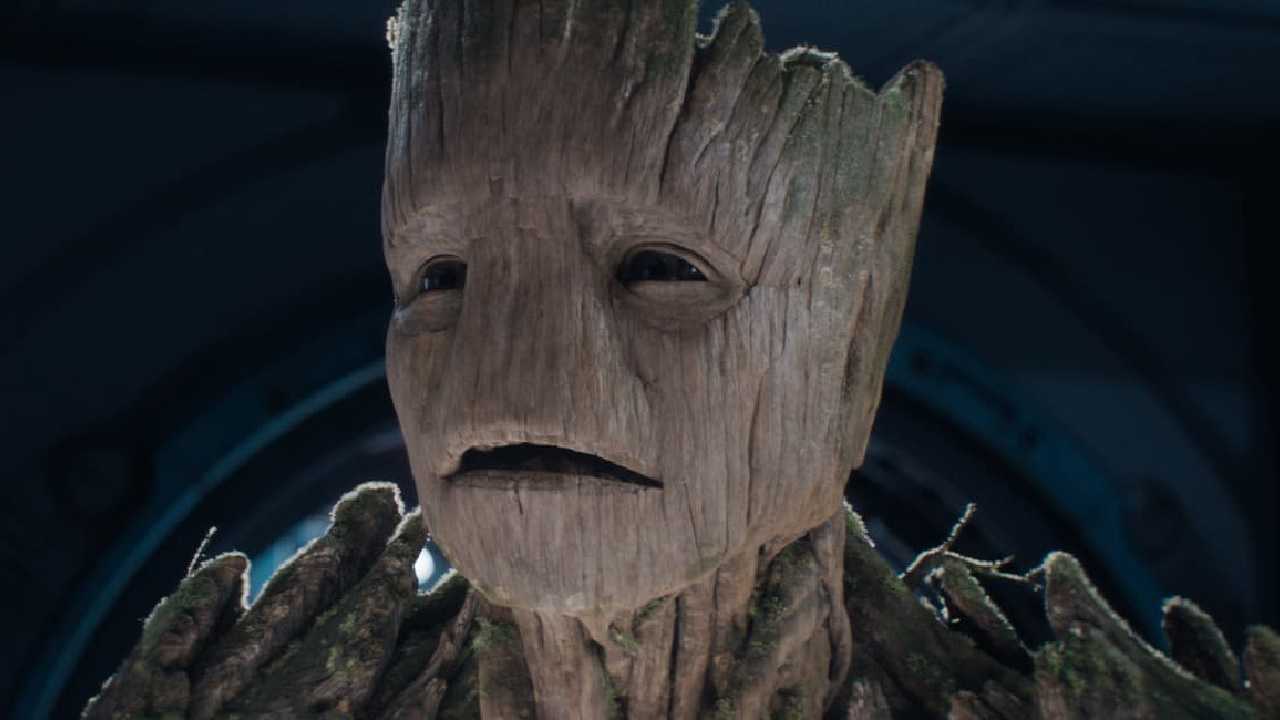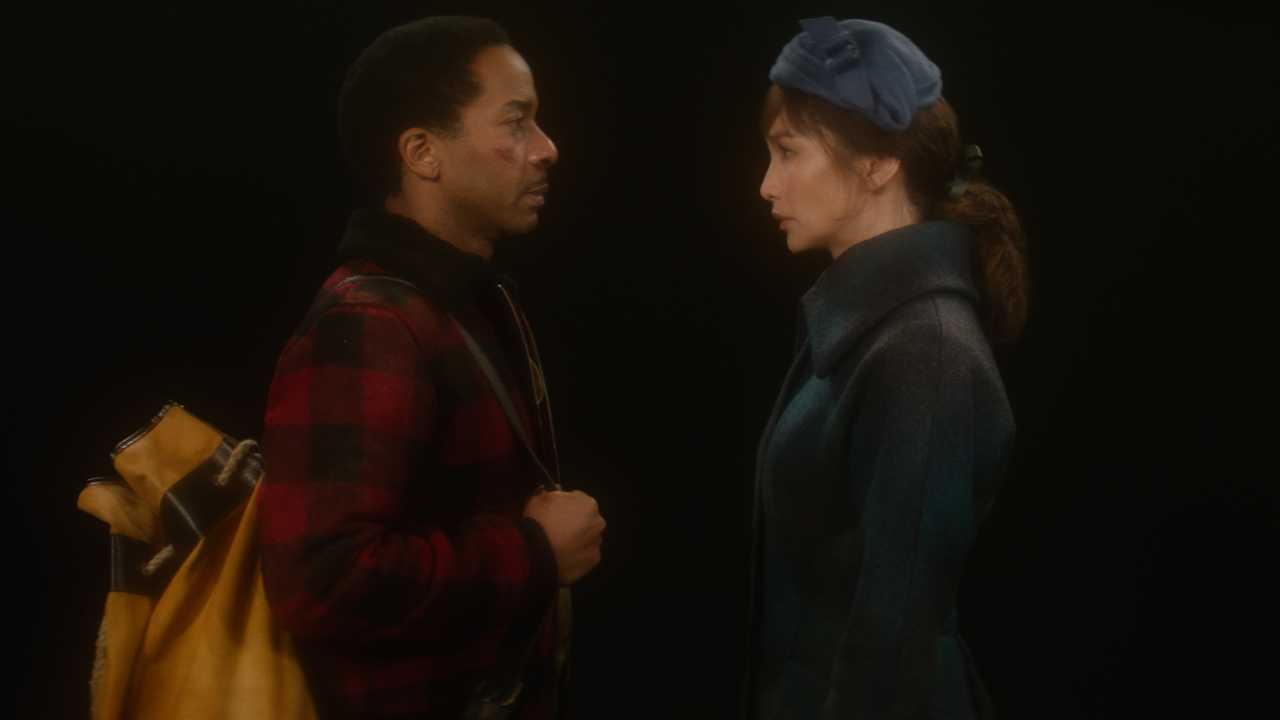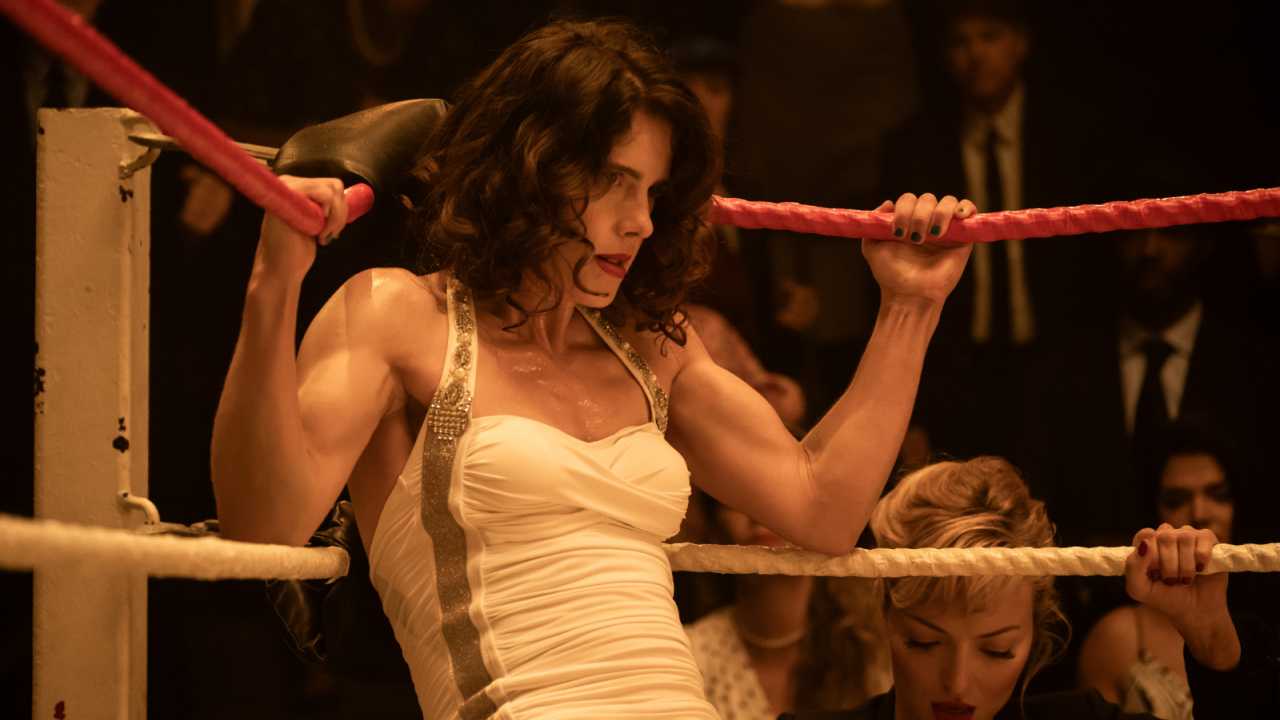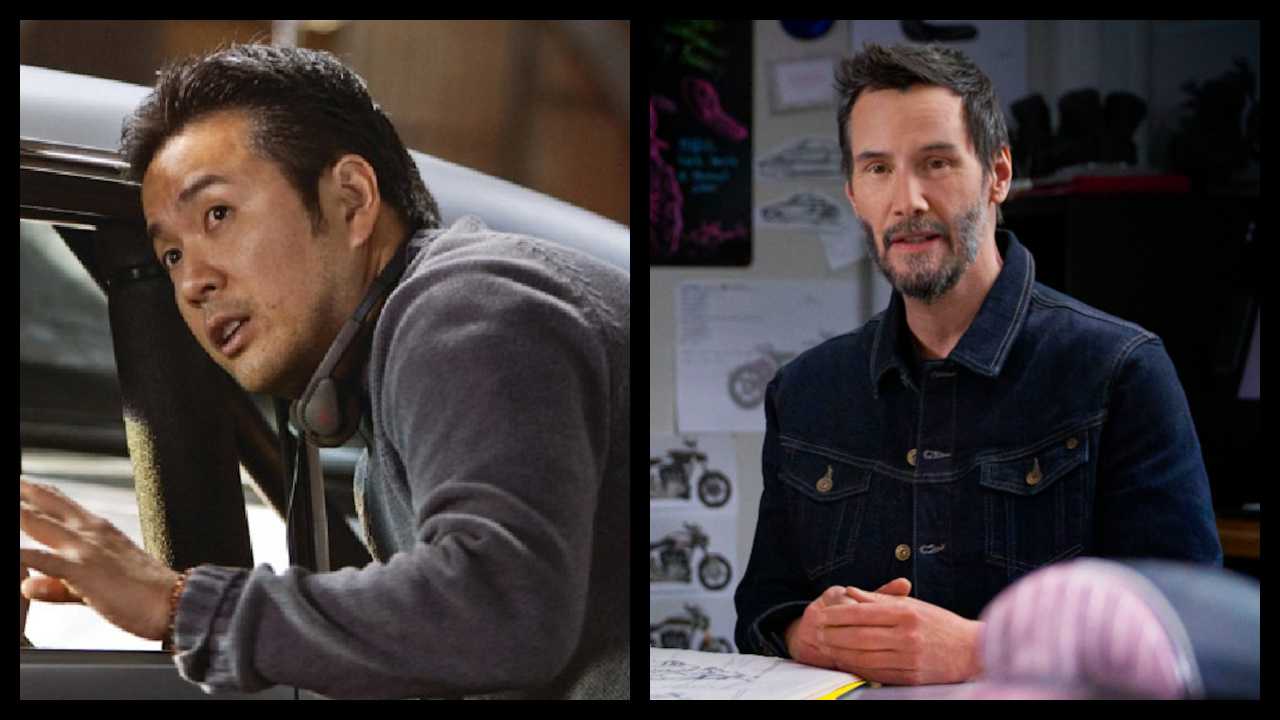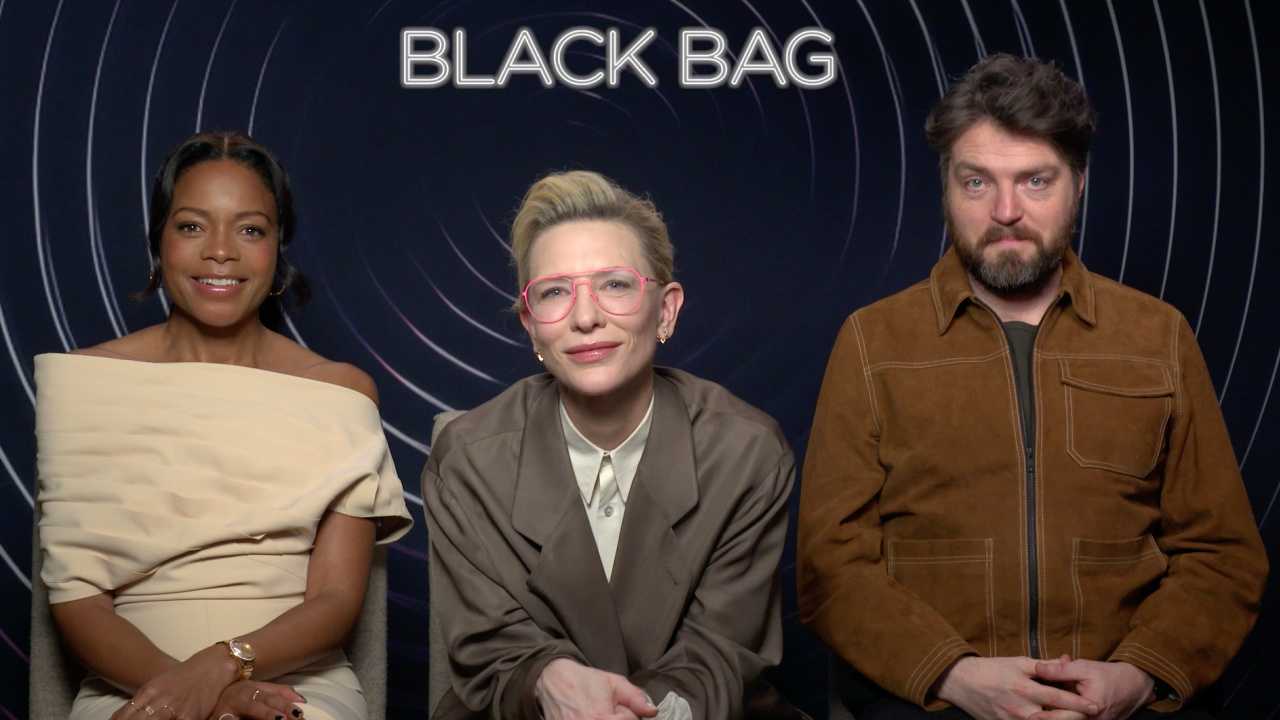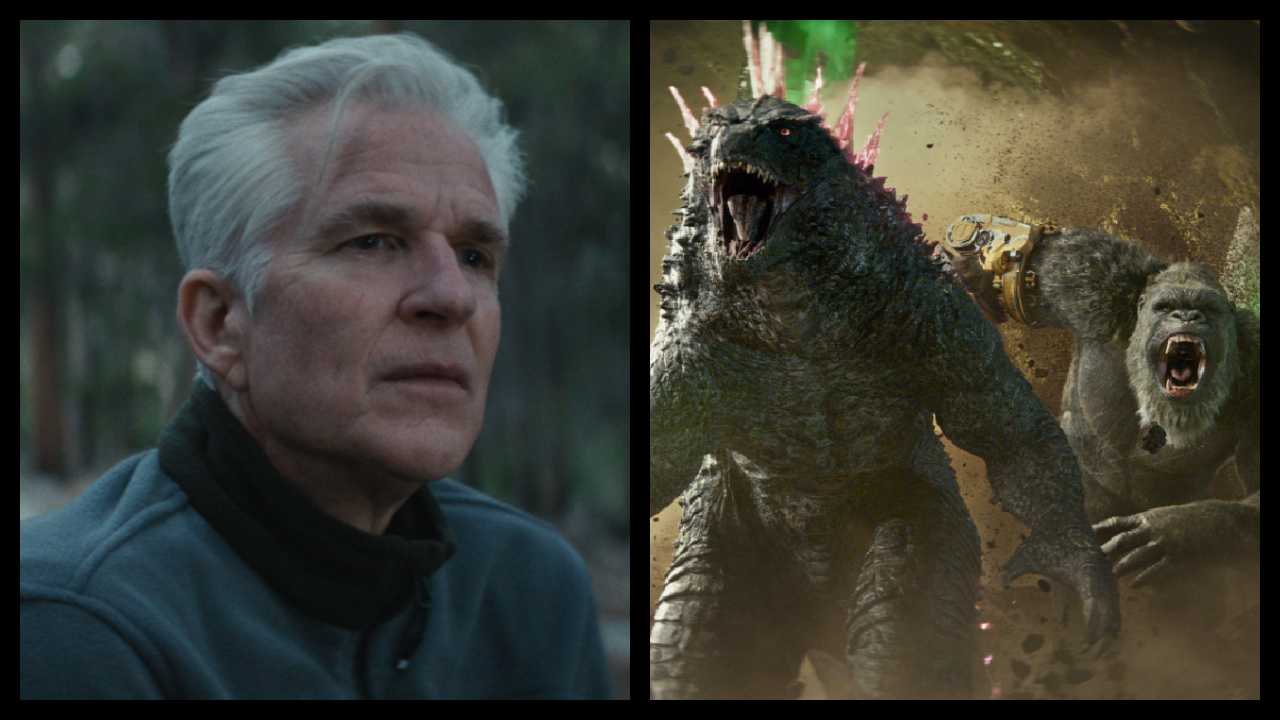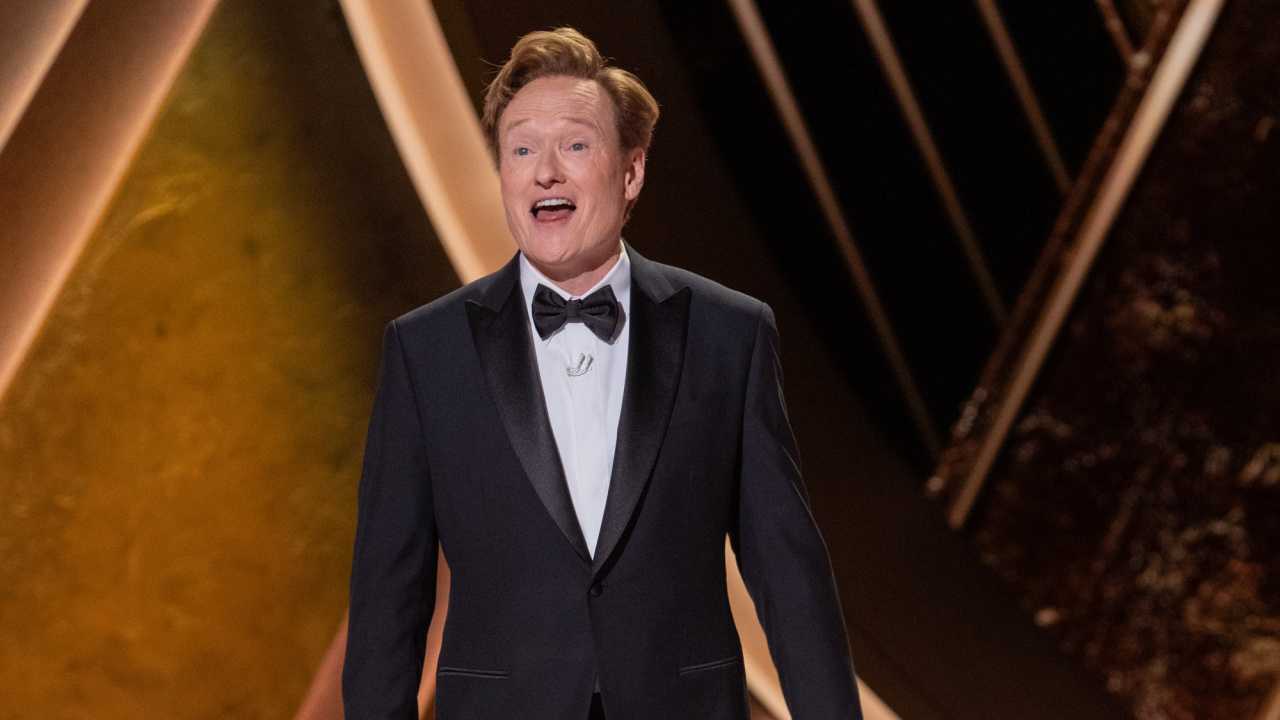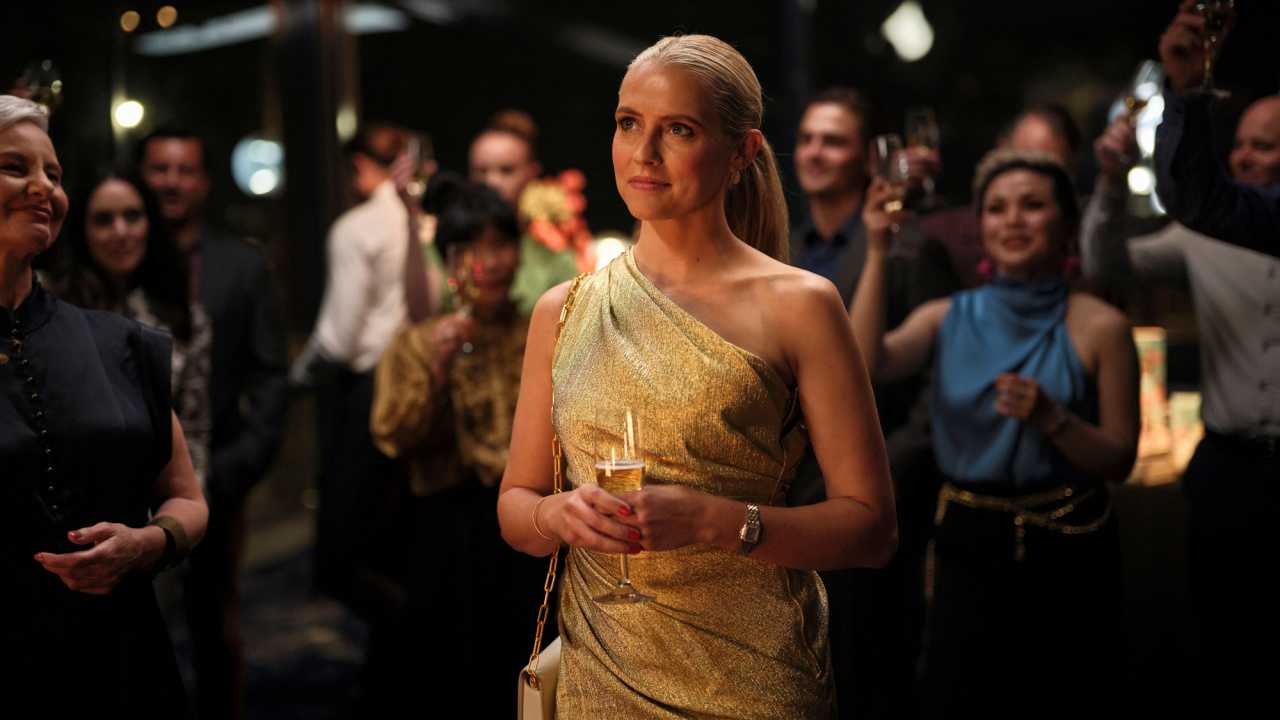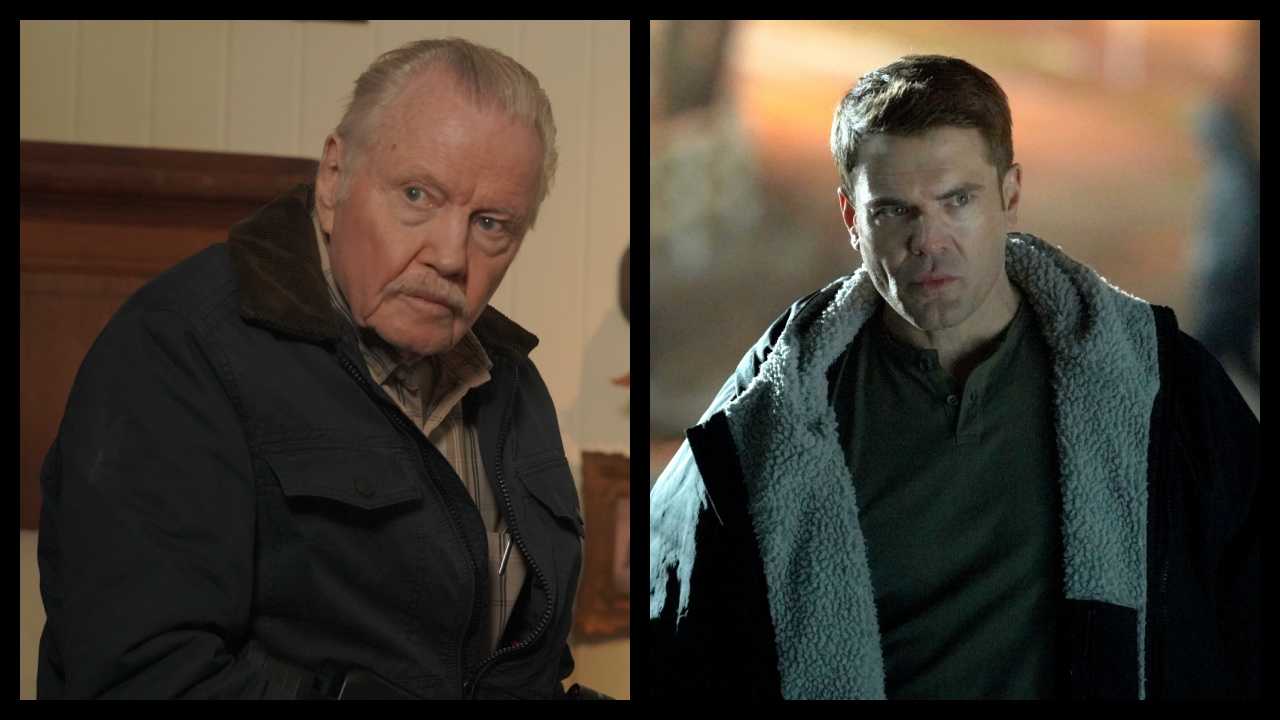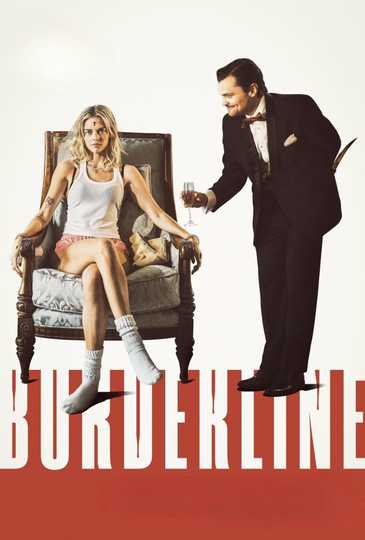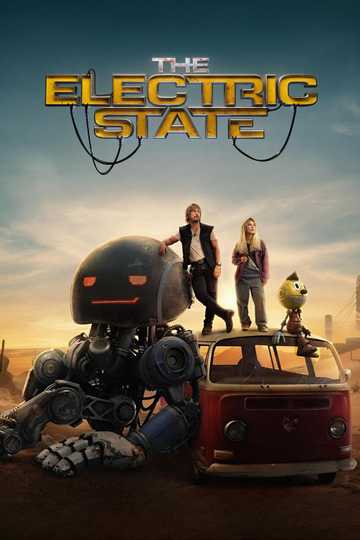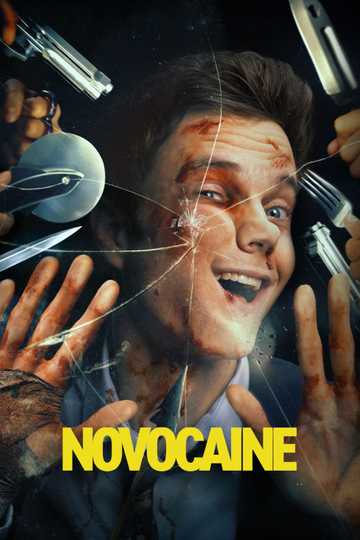Jason Schwartzman Talks 'There There' and the Unique Way it Was Shot
Moviefone speaks with Jason Schwartzman about 'There There.' "This is what I've been waiting for. I love an adventure. I loved the idea of it," he said.
Opening in theaters and on demand November 18th is the experimental film ‘There There’ from writer and director Andrew Bujalski (‘Support the Girls’).
The movie features a series of two-character vignettes that deal with ideas of isolation and perception and was filmed with each actor individually in separate locations, only joining them to their partner’s performance in the editing process.
The talented cast includes Jason Schwartzman, Lili Taylor (‘The Conjuring’), Lennie James (‘The Walking Dead’), Molly Gordon (‘Booksmart’), Annie La Ganga (‘Computer Chess’), and Avi Nash (‘Barry’).
Jason Schwartzman has appeared in such popular films as ‘I Heart Huckabees,’ ‘Scott Pilgrim vs. the World,’ and ‘Saving Mr. Banks,’ as well as the beloved HBO series ‘Bored to Death.’
But the actor is probably best known for his work with filmmaker Wes Anderson on such modern classics as ‘Rushmore,’ ‘The Darjeeling Limited,’ ‘Fantastic Mr. Fox,’ ‘Moonrise Kingdom,’ ‘The Grand Budapest Hotel,’ ‘Isle of Dogs,’ and ‘The French Dispatch.’
The actor will next be seen in ‘The Hunger Games’ prequel ‘The Ballad of Songbirds and Snakes,’ and be heard as the voice of Spot in the animated sequel ‘Spider-Man: Across the Spider-Verse.’
Moviefone recently had the pleasure of speaking with Jason Schwartzman about ‘There There,’ the unusual way it was shot, how that affected him as an actor, trusting the editors, his character, and collaborating with director Andrew Bujalski.
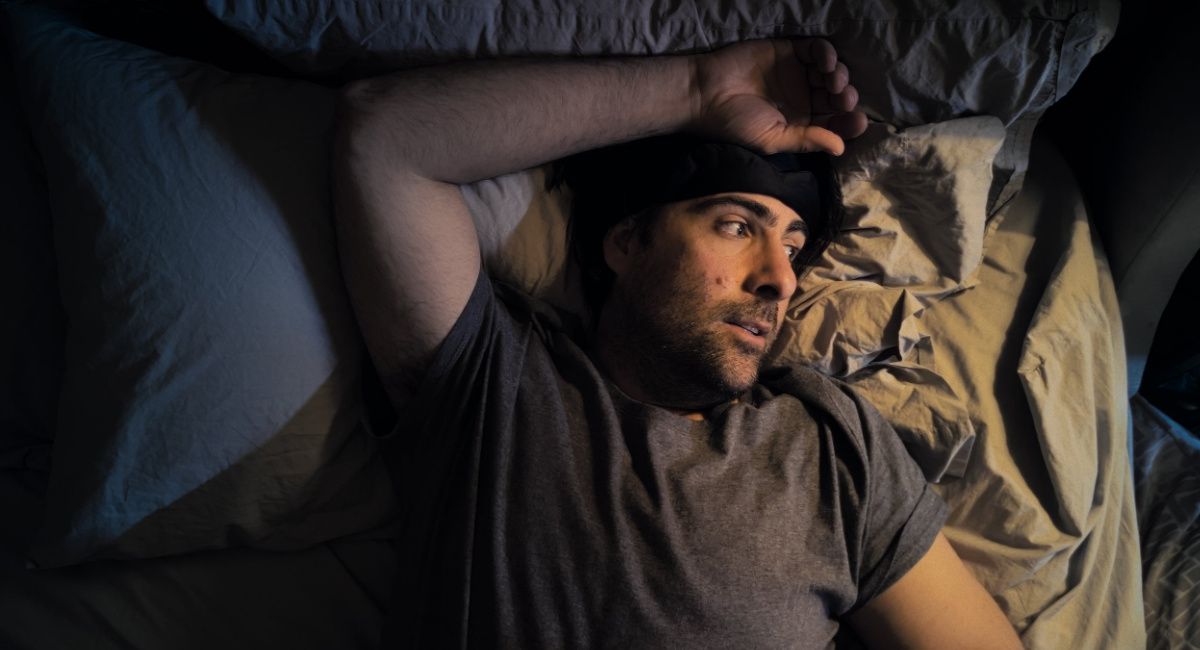
Jason Schwartzman in 'There There,' a Magnolia Pictures release. Photo credit: Matthias Grunksy. Photo courtesy of Magnolia Pictures.
You can read our full interview with Jason Schwartzman below or click on the video player above to watch our interviews with Schwartzman, Lili Taylor, Avi Nash, and director Andrew Bujalski.
Moviefone: To begin with, how did you got involved in this project and what was your first reaction to the unique way director Andrew Bujalski wanted to make this movie?
Jason Schwartzman: Well, I should say that I had met Andrew years ago, and we kept in loose touch, and we had each other's email addresses. My hope was always one day to be able to work with him. I got this email that literally, it said, it was the first time I'd ever seen the word cockamamie written out, which I don't know why I flagged that, but that was the subject, “cockamamie idea” or something. I opened it and my hope was, "Oh gosh, I hope I opened this and it's a cockamamie idea of how to work together, not just like a cockamamie some other thing."
Basically, he put out in one email, "I'm thinking of doing something, making a film in this style. I don't have it all figured out, the details, but the guidelines are really no crew. Every actor will be on their own and will be responsible for their own portions of the film. Would you be up for doing something like that?" Which, to me, I didn't know how to play it cool. I mean, that's what I've been waiting for. This is what I love, which is the adventure, and I love him. So, if I can be a part of anything and help him fulfill whatever he thinks is cockamamie, I'm there and I loved it. I loved the idea of it.
I didn't realize how welcome it was until I got the email because it was October of 2020, and I remember after I got the email, I couldn't stop moving around. I was just so energized by the idea of it, and by the prospect of it, and going to work with him, having this task to do, and trying to learn these lines and this whole script. It was just so wonderful. I'm so excited.
MF: As an actor, can you talk about the challenges of not being able to act opposite another actor?
JS: I was pretty excited about it, to be honest with you, because acting in movies, it's so interesting anyhow because it's edited. You can take someone looking off because they hear something and they're waiting for a siren to pass or something, and then you can put that here in the movie and it looks like they're listening to a conversation in the next room. I love that. I love the manipulation of that kind of thing, and transposing reactions and looks into different parts of a movie.
So, this would be the ultimate extreme version of that, which is just like, what would it be like to not react at all, to just do something? I was reacting because I would do the scenes with Andrew, but it was such an unusual process. I can't describe it, but I loved the challenge of it and I loved the idea of it too.
To be honest with you, I get nervous when I'm acting, and sometimes it's so embarrassing acting because they'll say, "Okay, everyone, quiet on the set and let's watch this person now. Everyone look at this person." It's just like, "Please don't look." So, I kind of love the idea that no one was looking, and it was almost like an animated film in that sense because it was just me.
I mean, obviously, we had a small group of people helping us and everyone's time was valuable, but I felt like there was a freedom to try things and to kind of work it out. Because we were on a new territory, it just felt kind of super free and it was wonderful. It got even to the point where I started to do the scene sometimes without even having Andrew do the other lines. I would just pause for the other actors’ lines in my brain and then just keep going, which was kind of an amazing thing.
I love the journey of what that scene is. It starts off between these two people that are by the end of it, really kind of talking to themselves, and then you are listening to yourself, and you're also not listening to yourself, and you aren't listening to the other person. It becomes the very thing that it's experimenting with. Do you know what I mean?
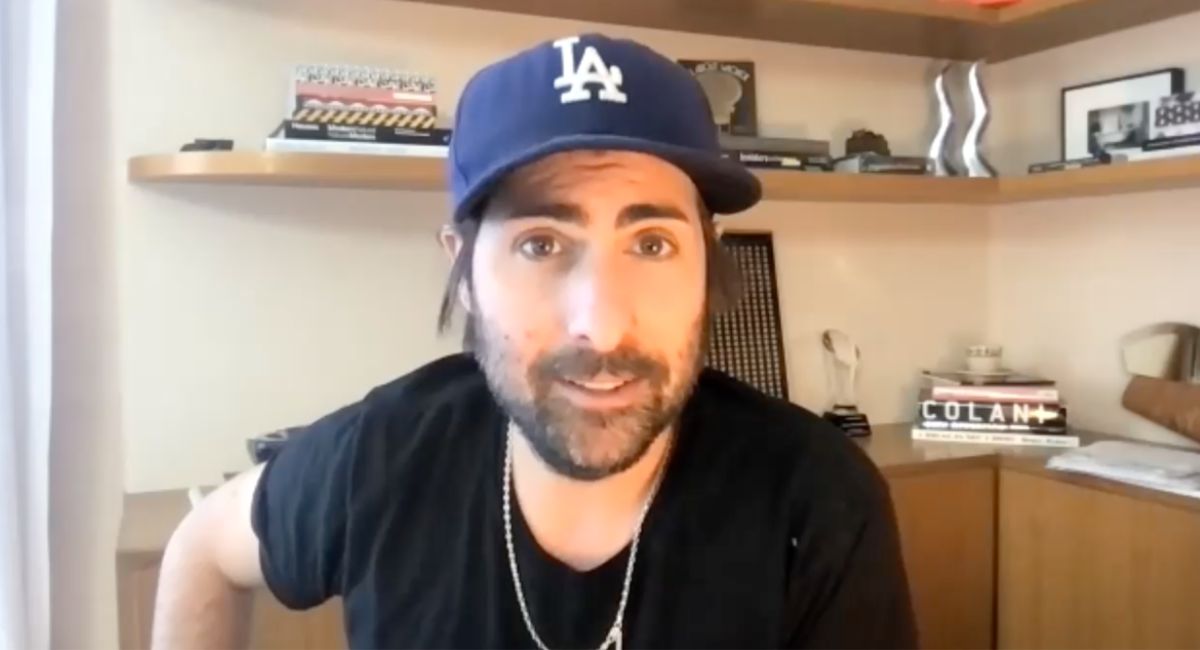
Jason Schwartzman stars in 'There There,' a Magnolia Pictures release.
MF: On a project like this, is there a certain amount of trust that you need to put into the editors because that's really who's going to be shaping the performances, or is that the same on every film?
JS: Well, I feel like it's the same on every film just because you don't know what it's going to be like. But I think that for me, I still haven't seen this film but I'm so excited to see it. This will be the first time in my life that I'm going to see a film, and sometimes when you go to see the final product, you have some sense of what it might be like because you were there with the other actors, but with this, I don't even know what they were doing.
This is the first time I'm going to see a scene. I have no idea. Literally, I was just totally by myself and so it's so thrilling to see that play out, actually. You know what? It's a good question about trust. I mean, I just trust Andrew. I love him. Obviously, I think to do this type of thing, I would only really be up for doing something like this with someone like Andrew, who I just think is a great artist and leader. Because I think to a certain extent if you just go out there and do a bunch of stuff and you don't trust the person, it's very frightening. But I felt totally comfortable and I think that I was one of the first people to shoot.
So, I enjoyed that we're all figuring it out, that whatever any hiccups we encountered, they could take note of and then give to the other actors to avoid any such problems when they shoot. I like the idea of being sort of like a tester, like a beta. I liked being the first one to experiment, to be like, "Okay, good to know. These microphones don't do this. Good to know that when you've got this person on an iPad here the internet goes like this."
I liked how new it was to everyone at the same time. I don't know why, I just felt there's a camaraderie in that because it's kind of what the pandemic was like. So, I liked all going into something with an idea of how it could maybe be, but really, none of us ever doing it before, truly.
MF: The movie deals with isolation, did the way it was shot, and also the fact that it was made during COVID, help you achieve that feeling of isolation?
JS: Well, I think that if you look at just the way we all interact with each other, or talk to each other, it's such an interesting dance, at least in my case of listening and not listening, and why people say something in the middle of a conversation that takes it in a different direction. With the Zoom and everything, people can be writing stuff, you could be doing a totally different thing. So, that totally came into play, this idea of focus, and listening, and being present with someone because you cannot be. I guess people can fake it, but I also think that you know
Anyway, it became that in such a wonderful way because you're acting in the scene, and you are, as much as I'm listening to the other lines and trying to do it, I'm also aware that I've got to have some kind of consistency to what I'm doing so that they can intercut. So, in the beginning of shooting those scenes, I knew all the lines, but you're trying to figure out where to be physically and look for these landmarks because there's going to be so much unknown, like where do we know he definitely should be standing? What can we lock in?
I love that process. Then you are kind of playing but also trying to get it, at least in my case, I wanted to get it consistent to where I was working towards something where not every take was so different, and I was trying to get better and better at it, or faster and faster. In that process, you realize that you are not listening anymore. Because there's no one there doing the scene with you.
So, there's no one to stop you from getting to your mark early or picking up a thing early. You start to hit these targets throughout the scene, these goals and say, "Okay, got to get to this thing here." I think it's somewhere in that you just begin to talk to yourself and it's kind of amazing, like I was saying earlier, it totally becomes what the movie's all about. You're listening and not listening. It's the illusion of listening, I suppose. Then it comes full circle where you go back to it and you are like, "Whoa," then you break through to another place where you all of a sudden are hearing these lines, almost like for the first time.
If you're learning flashcards, you're like, "Hmm, that is this. That is that," then by the end, if you've done them for enough, then you just know. You're like, "Hydrogen. Neon. Oxygen." You know the next card. But then there becomes a moment after that where you start to go, "Oxygen. Wow, that's something I never thought about. Oxygen."
You push through the robotic part of it, almost like a mantra, I suppose. The little I know of that. But like music even, it's just like you can break through and it was so fun. I mean, I love doing it this way I'm afraid of other actors, I think. I don't want the other actors to laugh at me and this was perfect for that. No other actor can laugh at you. Just yourself.
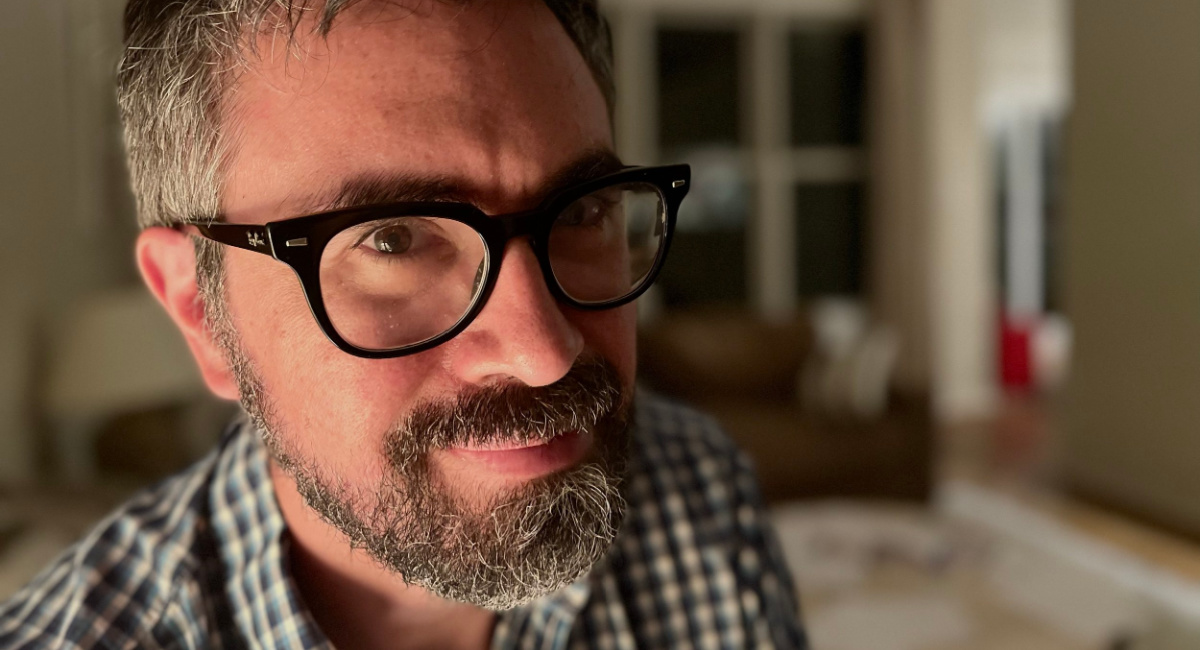
Andrew Bujalski, director of 'There There,' a Magnolia Pictures release. Photo courtesy of Magnolia Pictures.
MF: Finally, how would you describe your character in your own words? What did you like about him, dislike about him, and what was your approach to getting inside his head?
JS: That's a great question. I loved, by the way, the process of figuring this out with Andrew, who was so remarkable, and just a great collaborator. The way he talks about the characters and the way he answers questions, it's as if you really are asking him about someone who's real. He doesn't really know, but he's trying to understand too.
You ask a question. He's like, "I don't know. Why would he do that?" It's kind of like you're talking about this friend of yours that did something strange and you're trying to understand why they did it. What could possibly be happening in their personal lives? But to me, the character was really focused on the family aspect of it and I think that in my character's brain, I'm doing the right thing at all times.
There's a way his lives supposed to play out and if everyone can just bear with him, it will work out. But if anything becomes disruptive or questioned, it will fall apart because it actually isn't such a great plan. It's totally not a way one should conduct themselves and live their life, but he is focused on keeping his family together. So, to me, it was all about just keeping things flowing, good, positive, and stay with me, a kind of confident desperation, if that makes any sense. He’s just very desperate, but makes it seem like you're the one who's desperate.
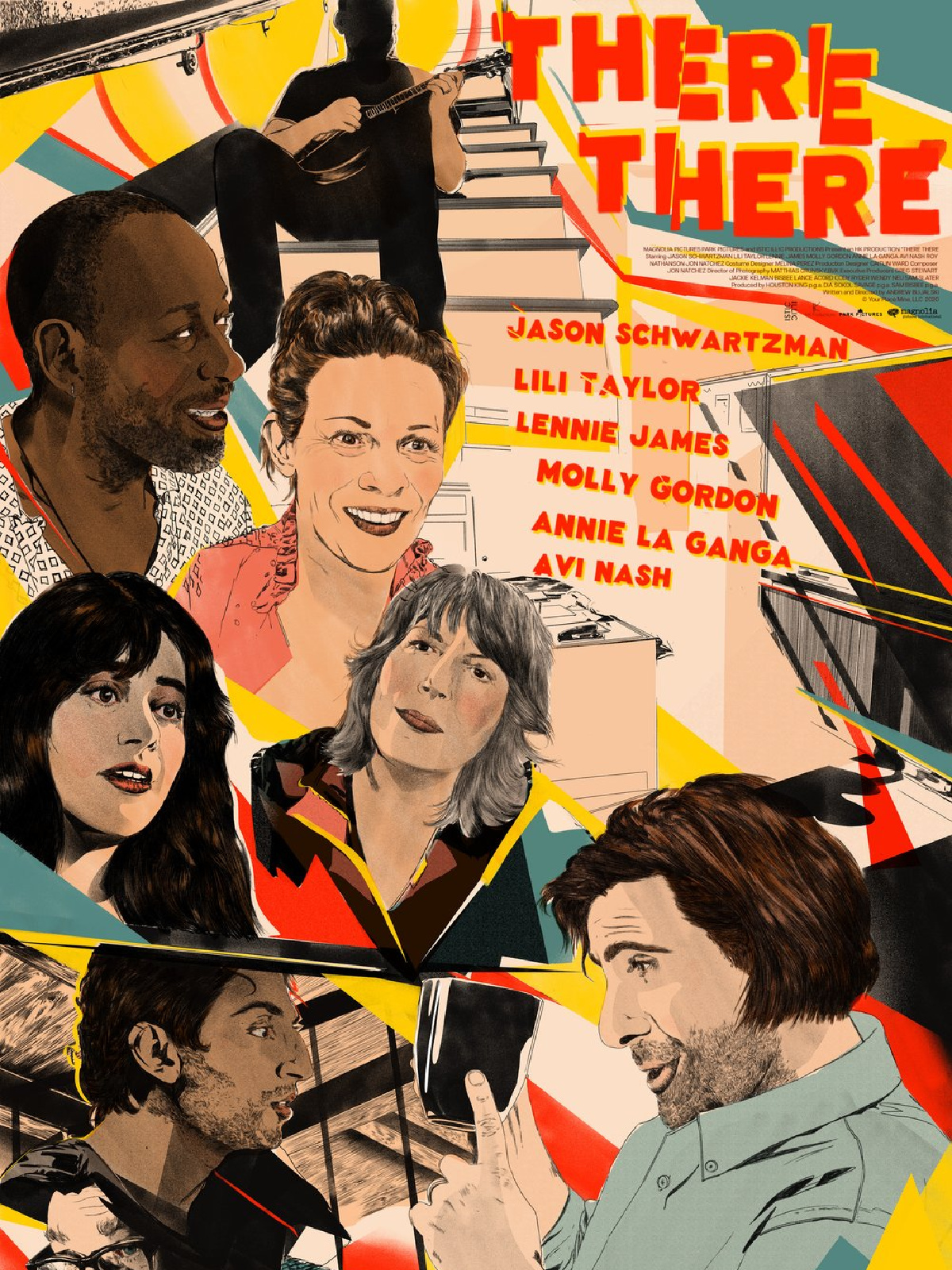
Theatrical one-sheet for THERE THERE, a Magnolia Pictures release. Photo courtesy of Magnolia Pictures.
